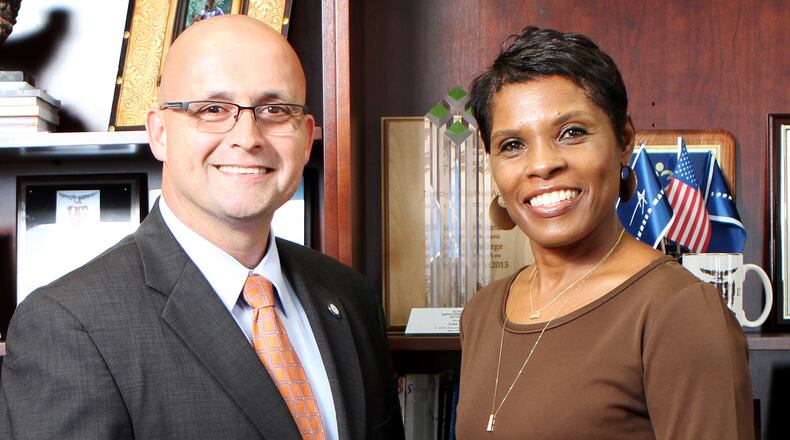With his noon endorsement of Democrat Valarie Wilson today, Republican State School Superintendent John Barge is leaving his office in the same manner he arrived and served -- bucking a GOP establishment that regards him as an outsider and a renegade.
Barge's endorsement drew this response from Richard Woods, the Republican candidate for state school superintendent:
By accepting Barge's endorsement, my opponent is endorsing four more years of pursuing many of the failed policies that we've seen coming out of the GaDOE. My opponent is endorsing the continuation and expansion of a failed testing model, a teacher evaluation tool that overburdens our teachers and overemphasizes test scores, a broken relationship with the governor and General Assembly, and a top-down approach to educational decision making.
While some focus on enhancing their political fortunes or career opportunities, I am focused on providing solutions to the challenges facing education in Georgia and articulating a plan that supports our students and teachers.
This election is not about Republican or Democrat, it's about the future of our children, the teaching profession, and education in Georgia. It's about whether we chose to continue to embrace the failed policies that are negatively impacting our classrooms, or we chose to adopt solutions that set our students and teachers up for success.
I call on my opponent and John Barge to both pledge that he won't be hired as an employee, contractor, or consultant to the department should she win.
In endorsing the Democrat for the job of running the Georgia Department of Education, Barge again breaks rank with his party. In 2012, Barge came out against the charter school amendment that allowed the state to not only approve charters over the objections of local districts, but to funnel local money to those schools. The amendment had the strong support of the GOP leadership, including Gov. Nathan Deal.
Barge said he could not support the amendment because it diverted funding from schools struggling with years of state budget cuts.
"Until all of our public school students are in school for a full 180-day school year, until essential services like student transportation and student support can return to effective levels, and until teachers regain jobs with full pay for a full school year, we should not redirect one more dollar away from Georgia's local school districts,” he said.
Barge’s ongoing criticisms of legislative cuts to education made him a hero to many educators, but he paid a price. He alienated Deal, who controls education spending. The governor decimated the DOE's administrative budget and marginalized Barge and his agency.
A disillusioned -- the governor's office would use the adjective "delusional" -- Barge unsuccessfully ran against Deal in the GOP primary for governor this year. Barge said he ran "to force the conversation on education funding."
"A number of your districts were close to bankruptcy --- very, very close," Barge told school leaders this summer at a conference. "And when I posed the question to the governor, 'Does anyone have a plan what you will do with bankrupt school districts?' the response was quick: 'Charters can just take them over.'"
Barge's independence may trace back to the unique circumstances of his election four years ago. When Barge decided to run against GOP incumbent Kathy Cox, few thought Barge or any of the challengers, including the current GOP nominee Richard Woods, stood a chance.
And then Cox shocked everyone by announcing she was leaving Georgia for a think tank in Washington just weeks before the July primary, leading to the election of a political unknown. But it wasn't an easy battle for Barge, who met resistance from the GOP leadership. Alarmed over Barge's anti-Race to the Top stance, Gov. Sonny Perdue, who was instrumental in Georgia winning the $400 million grant, handpicked another candidate. That candidate fell short of the needed signatures to get on the ballot as an independent.
Barge won the state school superintendent's post with little help from Republican power brokers. That both liberated and limited him. Yes, he had few political debts to repay, but he also had little political capital to call upon in tight spots.
About the Author
Keep Reading
The Latest
Featured



